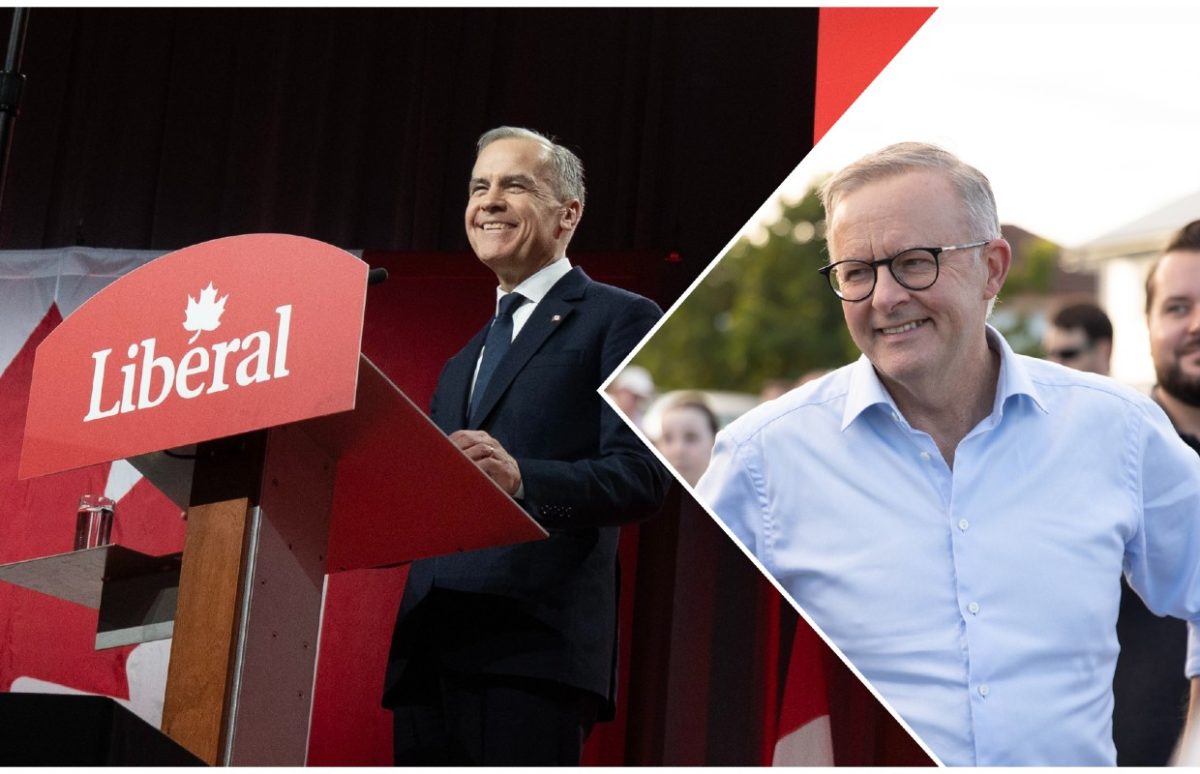Canada and Australia have decided to stick with the status quo after elections where the governments had been expected to lose their mandates.
In Canada, the Liberal Party was re-elected for a fourth term, though as a minority government. And in Australia the Labor party won re-election with a landslide victory. In both cases, the leader of the opposition lost their parliamentary seat as well as the election.
In Canada, Mark Carney took over as Prime Minister in March after Justin Trudeau resigned on 6 January. The Liberal Party under Trudeau was more than 20 points behind Pierre Poilievre's Conservatives in opinion polls and Trudeau's resignation was seen as a fairly desperate last-ditch attempt to regain some chance in the elections that had to be held by 20 October.
But Carney, who is a former Governor of both the Bank of Canada and the Bank of England, was seen as a safe pair of hands in the crisis between Canada and Donald Trump's government. Although he had never been elected, he had the reputation of having a smart financial brain and the capacity to successfully navigate crises.
The election on 28 April saw both Poilievre and Jagmeet Singh, leader of the New Democratic Party, lose their seats as the Liberals achieved results they could have only dreamed of at New Year. However, they fell just four seats short of a majority, meaning Carney will lead a minority government, as Trudeau had since 2021. Despite their leader's defeat, the Conservatives are still the largest opposition party, winning 142 seats to the Liberals' 168. One of the newly elected Conservative MPs has resigned his seat to allow Poilievre to try to win it in a special election.
Carney has promised to remain firm against tariffs imposed by the U.S. administration, and in the face of Donald Trump's repeated assertions that Canada should become the "51st state" of the U.S.A.
The G7 Summit, hosted by Carney in June in Alberta, will be a major test of his leadership.
Australia
Labor under Anthony Albanese held a one-seat majority going into the election on 3 May, and they trailed the Coalition Party in opinion polls. However, Australian voters also made the choice of stability. Labor have increased their majority to 9 seats in the 150-seat Canberra parliament.
Meanwhile, the Coalition Party leader, Peter Dutton, lost his own seat after holding it for 24 years.
Albanese's government raced going into the election about the cost of living, housing shortages and problems in the healthcare system. They had also lost the referendum held in 2023 aiming to give Indigenous Australians better representation. But although Australia is not facing as existential threats as Canada from the Trump administration, it seems that voters felt confidence in the leader they knew.
Copyright(s) :
Canadian Liberal Party
Australian Labor Party
> Canada Elections: Status Quo
> All Around Canada to Celebrate 150 Years
> Justin Trudeau Resigns as Canadian PM
> Australia Bans Social Media for Under-16s
> Australia Says No in Indigenous Representation Referendum
> Australian Election Called
Tag(s) : "Anthony Albanese" "Australia" "Canada" "Carney" "elections" "electoral systems" "parliament" "politics" "Trudeau" "Trump"





